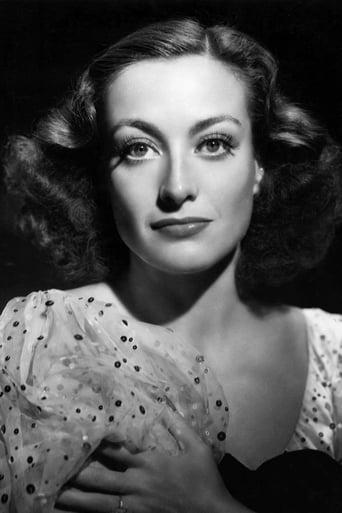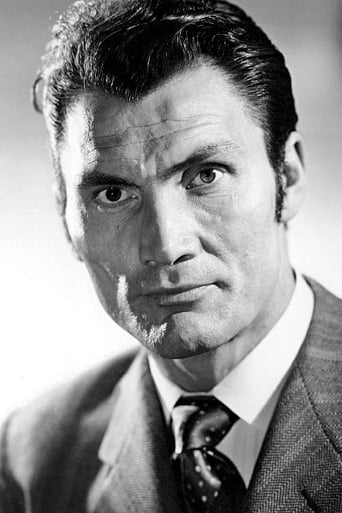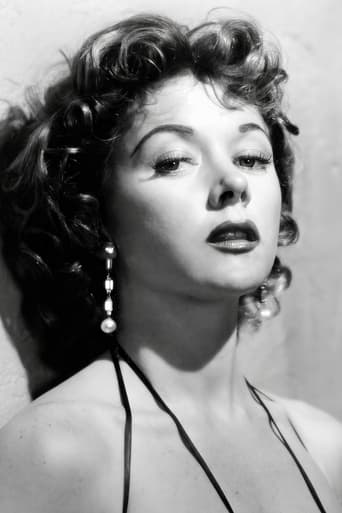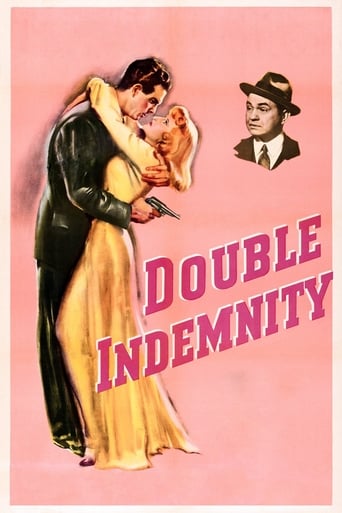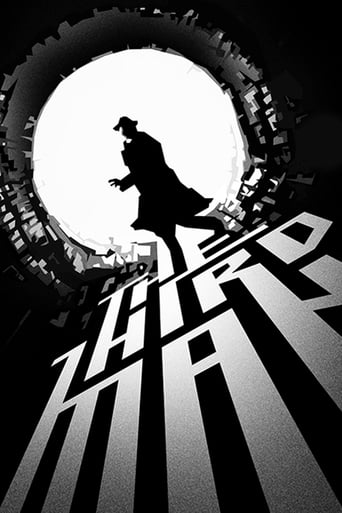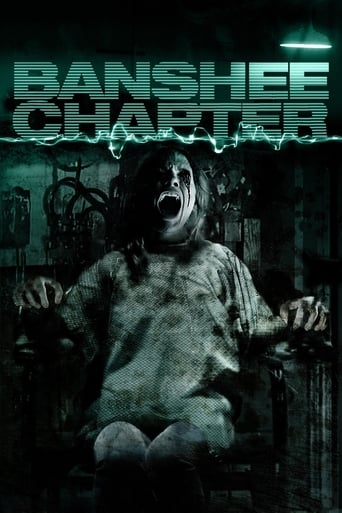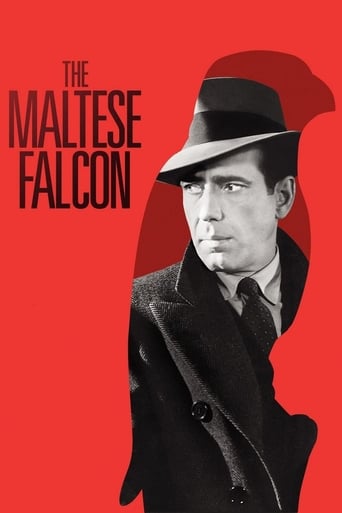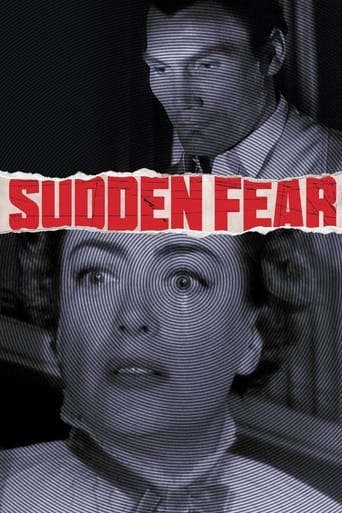
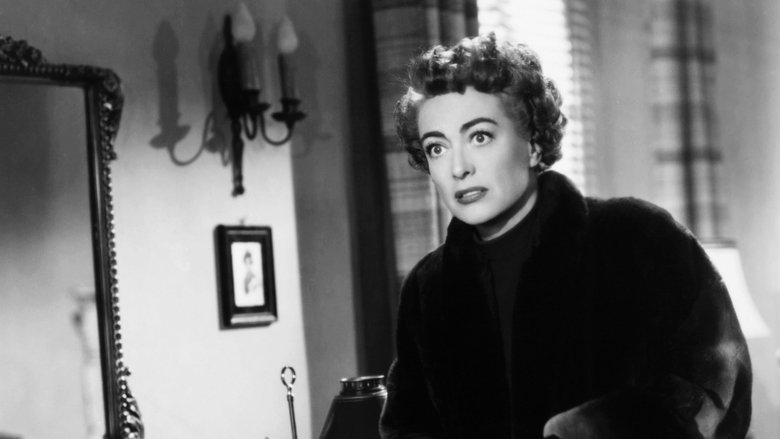
Sudden Fear (1952)
Actor Lester Blaine has all but landed the lead in Myra Hudson's new play when Myra vetoes him because, to her, he doesn't look like a romantic leading man. On a train from New York to San Francisco, Blaine sets out to prove Myra wrong...by romancing her. Is he sincere, or does he have a dark ulterior motive?
Watch Trailer
Cast
Similar titles
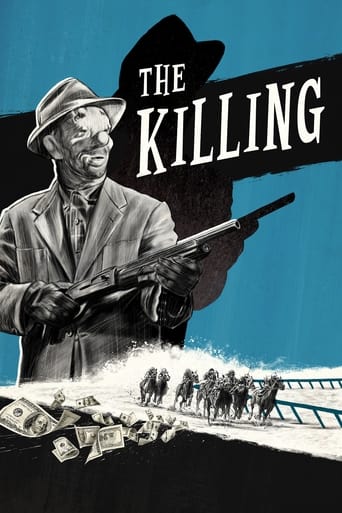
Reviews
I wanted to but couldn't!
Am i the only one who thinks........Average?
The acting in this movie is really good.
One of the film's great tricks is that, for a time, you think it will go down a rabbit hole of unrealistic glorification.
Predating Hitchcocks Vertigo by 6 Years, this movie is an RKO production with a very good cast that has some scenes which are choppy. In a way, there are several irony's here which are legend. Supposed Joan Crawford wanted Clark Gable for Jack Palances role. Gable claimed he was too old for this role. David Miller, who directed this is said to have convinced Crawford to cast Palance. If this is so, the first scene is a reflection of real life where Crawford is not happy with Palance rehearsing her new play and fires him. Legend has it that Crawford then becomes interested (in real life) with Palance but in real life he was having an affair with co- star Gloria Grahame. If this is true, it might be why Gloria divorced in 1952, but her next spouse was not Palance. (Grahame would have 4 spouses in real life.)Early on the film has some things that will remind the viewer of Hitchcock. The use of a stair case early on and then the film moving from the east, through Chicago by train and then relocating for most of the film to San Francisco. The golden gate bridge and the hilly streets of the Golden Gate city are featured throughout the film from this point.At first, it seems Palances character is just out for revenge for being fired. Then it gets more complicated. Edna Sherry who wrote the novel only has one other film to her credit as a writer, 1929 Thru Different Eyes which has little information about it other than the cast on IMDb featuring Warner Baxter.The atmosphere in Sudden Fear is very much like a film noir, the glorious dark black and white which is nothing like Hitchcocks glorious color Vertigo, but you have to remember this is an independent production company releasing through RKO who in 1952 was nearing it's end and of being sold to Lucy and Desi. The film is ambitious and clever but the budget here must have been quite tight which might account for some choppy scenes.A viewer who has watched the TV series Mannix will recognize a young Mike Connors in this in a supporting role as a love interest for Gloria Grahame along with Palance and he is also a friend of Crawfords character which makes for some lively scripting.There is a well staged chase sequence in the latter part of the film. Overall a film that could have been better but falls a little short of classic noir, and way short of Hitchcock's Vertigo though the suspense of Crawfords character can pull the viewer in along with the plot and counter-plot aspects of the main characters.This recently premiered on Turner Classic Movies.
A full-fledged star vehicle for Ms. Crawford, in this film-noir tale, she plays Myra Hudson, a rich Broadway playwright-spinster, who intuitively vetoes an actor Lester Blaine's (Palance) audition for her newest play, since his unusual look doesn't seem to be well qualified for a romantic role, which prompts Lester's chagrin and he rebukes that Myra is wrong for her impetuous decision.Some days later, on the train back to her home in San Francisco after the play turns out to be a hit, Myra encounters Lester, out of courtesy and to manifest there is no hard feelings, they bury the hatchet and Lester proves to her that he in fact is a virtuoso romantic suitor for her despite the age difference, and she is significantly besotted, the two tie the knot afterwards, which erects a perfect hotbed for the ensuing murder plan.There is an ulterior motive in Lester's agenda from his very first move, when his old flame, a sensual siren Irene Neves (Grahame) arrives uninvited, the two scheme together to murder Myra after knowing that the latter will donate the bulk of her fortune to a foundation. But Ms. Crawford will not resign herself to an unwitting wife who is like a lamb to slaughter, right in the midway, Myra receives a rude awakening and unearths Lester's sinister plan, after the initial shock and distress (which inconveniently outstays its welcome as Ms. Crawford's one-woman show), and a clumsy act which accidentally destroys the key testimony, she straightens up and dauntlessly decides to preempt their action in her own way.Here, the movie starts to glisten with suspense, under the ominous chiaroscuro lighting, particularly designated in her favour, Ms. Crawford's dignified mien glints intensely from resolution, hesitation, worry to utter fear, and everything is on tenterhooks, viewers vicariously experience the struggle, strain and danger from Myra's viewpoint, playing meek and unsuspicious in front of her double-faced husband on a daily basis, cautiously plotting her counter-move in the sly step by step, while keeping hold of her usual pretence without arousing any suspicion, she must be a natural actress herself to fake a glamorous fall from staircases without any damage done to undercut her mobility, also a first-rate penmanship-imitator, and practising her first-ever plan of murder in her mind, which is a dead giveaway that things will not proceed exactly in the way as she has envisaged. The biggest question is, is she as good killer as an actress? Is she capable of pulling the trigger when the crunch arrives?The script mercifully (or rather cowardly) saves Myra from being the ultimate executioner of poetic justice, lest it would blemish Crawford's iconic benevolent image, she is never a noir heroine, and here, she is ever so close to be one, an Oscar nomination is quite rewarding, it is the only time, she and her arch-enemy, Ms. Bette Davis (in Stuart Heisler's THE STAR 1952) are competing in the same category, although both are the charming also-rans in this case. An angular, hatched-faced Jack Palance is an unorthodox leading man in his career breakthrough role, who has no qualm in oozing venom while being hospitable and deferential. Yet, he is routinely degraded with a BEST SUPPORTING ACTOR Oscar nomination, high-fives with his fellow nominee Richard Burton in Henry Koster's MY COUSIN RACHEL (1952), an Olivia de Havilland's vehicle, two glaring examples of Academy's category injustice for budding leading actors.One of the strong points of this David Miller's thriller is the cinematography from Charles Lang, greatly taps into the forbidding nighttime of San Francisco, e.g. the final chasing sequences in the steep streets, sufficiently surpasses the ongoing action itself. Finally, a friendly advice to all female viewers, sometimes, you have to stick to your instinct of the first impression, simply because it is a life-saving bonanza bequeathed by nature itself, don't easily throw it away.
Myra Hudson, in "Sudden Fear," has a self-directed life: she's a successful playwright, an heiress in charge of a large fortune, and the center of an artsy San Francisco social circle. She's an astute professional, sharp, intense, dignified, and absorbed in her career/life. However...god forbid, she ain't married.So a second life plot opens up for her when she encounters Lester Blaine--the actor she has dismissed for not being "a romantic leading man" for her most recent smash Broadway hit. As a woman of around 40, she doesn't possess the social or personal props to confidently slip into or deny romance or marriage, and most certainly is typecast as an old maid, if not by all the world, than at least by the calculating mind of Lester Blaine, who must rely on her desperation to wield his narrative.For when Blaine enters her train (to San Francisco) he starts a train of events, none of which will be in her favor. His "play," which might be called "Halfway to Hell" displaces her "Halfway to Heaven." It will understandably seem to Myra, and to a lesser extent the viewer, as a light romantic drama. For despite his raw physicality, his shifty demeanor, Lester manages to appear mild in manner, polite, and poised past any vengeance for what appeared to be a massive ego slight in his bolting stage exit. He's also surprisingly literate--and rather convincingly romantic.At least enough to easily win Myra over. For he represents to her a lucky chance at a long missed passion. Her receptivity is so apparent that it even worries the train porter who helps the blissful couple out with Blaine's little confidence game. And Myra's descent to type is soon furthered by her quickened sympathy for Lester's life story (he's the son of a coal miner--a war vet who played sad Lenny in "Of Mice and Men")--his standard expectations soon becoming hers.She glides along, accommodating herself to his charm, his fun sporty ways; introduces him to her fancy social set, and even arranges a party for him. Which he uses to accelerate his marriage trap, by staging, through his absence from this devotedly prepared celebration, his immense unworthiness in Myra's life. "I am no match for you." "I have no proper place in your life," he tearfully exclaims, baggage in hand, looking down on her from atop his staircase, in his most self-pitying display.Which Myra is not only duped by, but which calls out her deepest passions: "Without you, I have NOTHING." As in no career, no success, no life; as in love super-ceding her whole existence. His charade has paid off, for Myra is flat out susceptible even to so obviously a phony, an inapt, a suitor.No wonder Lester's certainty and suavity. No wonder he has no need to confide in her, inquire into her career, nor even respect her professional's authority. One irony is that the "good actor" doesn't have to be a very good actor at all in his own 'play.' Another is that a well-established upper class arts professional cannot begin to opine on a lower class fledgling actor. So it is, that Blaine can disarm her mind, her work, her name, her money, her independence all by a simple, casual plot.But the powerful obloquy of the single state combined with Lester's male prerogatives, are not solely responsible for Myra's capitulation. Because her own social power, while it may not affect Blaine much, can work against her. She senses herself in charge despite all her accommodations to him. She is also too confident to question her take on him, even when it's clear that her lawyer, friends, and even Irene, Lenny's ex, do grasp his intentions. Indeed fame can offer a bit too much hubris, as in Myra quoting Nietzsche's "live dangerously" to spark Lester to action. To which he counters: "He's dead." But thanks to the twists and turns of the suspense portion of "Sudden Fear," we soon learn that Myra's identity, as thin as it may seem under the pressure of romance, is not squelched. For Lester's demonic play/plot begins to unravel, thanks to Myra's (the writer) Dictaphone machine. And, if with too many tortuous steps, she does begin to exhort her previous authority.In the end, she grasps that her courage for revenge, is a means and not an end (she cannot obliterate Blaine or herself) in confronting and recapturing her abandoned identity. Which in the film's final moments: "It's Irene, STOP!" is even amplified through her powerful desire to save the sinning femme fatale--another typecast woman, one who is being mistaken for herself--from her own intended death sentence. She can't save this unknown sister, but she now purposely strides through the deserted, sinister street, alone, but a bold author once again.
I had this film on my radar for quite some time. It had nothing to do with the fact that I try and see all of Joan Crawford's "decent" films. I was more interested in seeing her do a serious "thriller/suspense" film. The 40's stuff just didn't have that nefarious feel to it in terms of suspense/thrillers. The 50's, IMO, kick started this genre and this little film from RKO was a real gem.I'll be quite blunt...The first half of this film is really slow. Almost to a point that I came real close to stopping it but I soldiered on all I can say is wow. As the story goes, Joan Crawford is a wealthy theatre producer who in the process of an audition decided that the guy who's trying out for the role (Jack Palance) doesn't have "it" to wow the ladies in the audience. He's a good actor but just not what she thinks will work.Fast forward to the play being a success without out him and we get her leaving to go back home to San Fransisco and a chance meeting with this guy on a train there. They strike up a friendship and as the train ride goes on, more than a friendship and she ends up marrying him. The problem is though, you just get the feeling that he's up to know good.I can't tell you how gripping the 2nd half of the film is. It keeps you right there where you don't wanna leave your seat. Joan Crawford is the star of this for sure but to play the heavy they give you Jack Palance. IMO this was a miscast. I realize he plays these roles quite well but for him to get the girl was just something that left a weird taste in my mouth. Not because the film didn't work but because I think they could have made a better choice to do the job. I've never thought Palance was much of an actor or even remotely close to good looking but you could tell this one was made on a budget as Ms. Crawford wasn't a hot commodity as this point and time.See this film and wait for the 2nd half. The ending is just what you wanna see in an ending. You'll probably go to sleep at night and before you nod off you'll say..."Yes....he got what he deserved".
